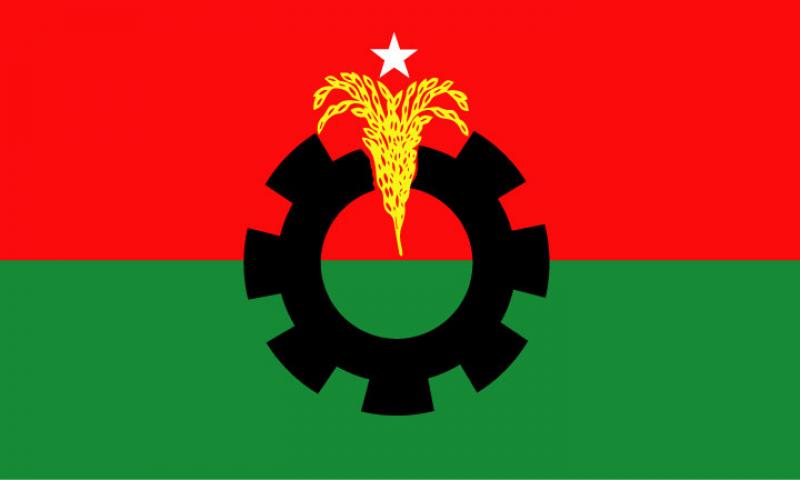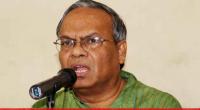 The Bangladesh Nationalist Party (BNP) is changing its anti-India stance as it does not want to have ‘election-centric relation’, but want to develop long-term stable relations’ with the neighbouring country.
The Bangladesh Nationalist Party (BNP) is changing its anti-India stance as it does not want to have ‘election-centric relation’, but want to develop long-term stable relations’ with the neighbouring country.
Ahead of the next national election, the political party is closely monitoring the Indian position and is planning to formulate a pragmatic neighbourhood policy, regardless of governments.
The party wants to take a strong stance against border killing and the Teesta water sharing deal while it does not have any objection to giving transit to India.
BNP takes recent visits of Awami League leaders to India and different think-tank policy and research papers into cognisance while formulating its foreign policy.
Former minister and senior BNP leader Amir Khasru Mahmod Chowdhury told the Bangla Tribune, “We will not let anybody use Bangladesh territory against any of our neighbours.”
Chowhdury, businessman-turned-politician Abdul Awal Mintoo and BNP executive council member Tabith Awal are responsible for maintaining liaison with India.
However, Khasru was a minister under the BNP-Jamaat government in 2004 when the law enforcing agencies hauled 10 trucks loaded with arms in Chittagong and according to the court verdict, the arms were destined to Indian separatists operated in the north-east region. The then industries minister Motiur Rahman Nizami, a Jamaat leader, and state minister for home affair Lutfuzzaman Babar, a BNP leader, have been sentenced to death in the arms haul case.
Since 2012, there was an indication of shifting its India policy. Statements from BNP chief Khaleda Zia in the last couple of years, the BNP national council in 2016 or its Vision 2030 declaration discussed about the best possible relationship between BNP and India.
The political party’s flagship document Vision 2030 stipulated that “BNP will not interfere in the internal affairs of any country and it will not create any security problem for any country.”
Member of the BNP chairperson media wing Shairul Kabir Khan told the Bangla Tribune that Khaleda Zia visited India in 2012 and had meetings with the then Indian president Pranab Mukherjee, prime minister Manmohan Singh, foreign minister Salman Khurshid, national security adviser Shiv Shankar Menon and foreign secretary Ranjan Mathai.
“In her meeting with the president (Mukherjee), BNP chairperson said Bangladesh territory would not be allowed to use by Indian separatists,” Kabir Khan said.
However, the following year when Pranab visited Dhaka, Khaleda refused to meet him as on that day Jamaat, political ally of BNP, called a day-long strike.
The top party leadership is against any move that might make Indian policymakers angry, sources at the BNP diplomatic wing said.
Citing example, a source said, “In March, BNP planned to send a proposal to the United Nations on Rohingya issue and it wanted China to take the lead to resolve the crisis. But, the plan was rejected by Tarique Zia on the ground that it might annoy the neighbouring country.”
A former Dhaka University vice-chancellor Emajuddin Ahmed told the Bangla Tribune, “Listening to what BNP is saying in recent times, it seems that it does not have anti-India stance. It is talking about having good relations with India. It is somewhat different than the relationship it had with Congress-led government. But it is difficult to measure.”
Jahangirnagar University professor Dilara Chowdhury said, “BNP might understand that it would not win election with the support of India or political purpose would not be achieved.”
It is perceived India does not like BNP the way the country likes Awami League, she said.
About this issue, Khasru said, “We hope there would be relationship among the people and governments of the two countries, not with any particular quarter. If some Indian policymakers feel that way, it would not only hurt the bilateral relationship but also keep the Bangladeshi people in distance.”
 Politics
Politics
41452 hour(s) 28 minute(s) ago ;
Evening 11:22 ; Wednesday ; Jul 09, 2025
BNP's foreign policyShifting from the anti-India stance
Send
Salman Tareque Sakil
Published : 12:22, May 02, 2018 | Updated : 16:42, May 03, 2018
Published : 12:22, May 02, 2018 | Updated : 16:42, May 03, 2018
0 ...0 ...
/ssz
Topics: Top StoriesExclusive
- KOICA donates medical supplies to BSMMU
- 5 more flights to take back British nationals to London
- Covid19: Rajarbagh, Mohammadpur worst affected
- Momen joins UN solidarity song over COVID-19 combat
- Covid-19: OIC to hold special meeting
- WFP begins food distribution in Cox’s Bazar
- WFP begins food distribution in Cox’s Bazar
- 290 return home to Australia
- Third charter flight for US citizens to return home
- Dhaka proposes to postpone D8 Summit
Unauthorized use of news, image, information, etc published by Bangla Tribune is punishable by copyright law. Appropriate legal steps will be taken by the management against any person or body that infringes those laws.
Bangla Tribune is one of the most revered online newspapers in Bangladesh, due to its reputation of neutral coverage and incisive analysis.
F R Tower, 8/C Panthapath, Shukrabad, Dhaka-1207 | Phone: 58151324; 58151326, Fax: 58151329 | Mob: 01730794527, 01730794528


